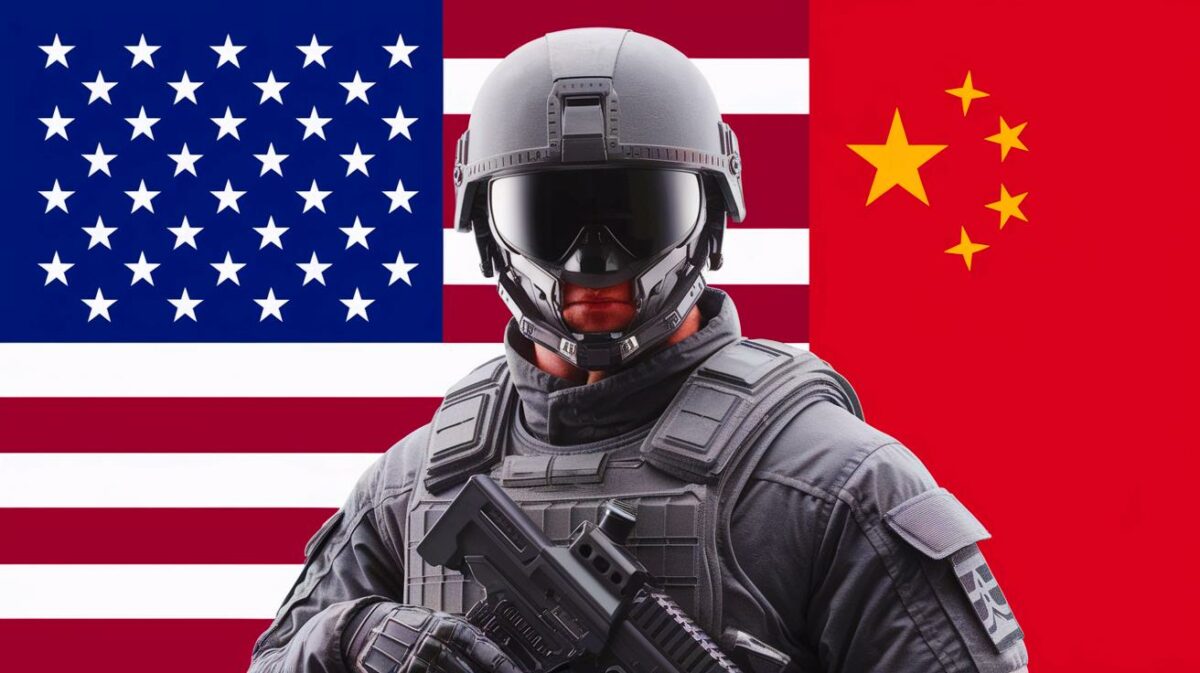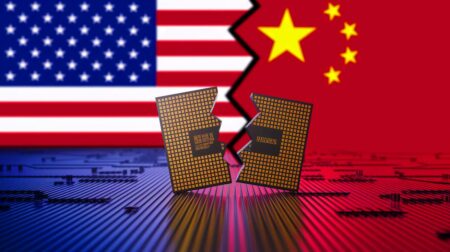| IN A NUTSHELL |
|
The United States is at a pivotal moment as China accelerates its ambitions to dominate the future of warfare through the integration of biotechnology and artificial intelligence (AI). A recent report by the US National Security Commission on Emerging Biotechnology has highlighted China’s systematic approach, reshaping the global biotechnology landscape. This initiative is part of China’s broader strategic vision to create a world-class military by 2049, focusing primarily on “intelligent warfare.” As the US grapples with these developments, the implications for national security are both profound and alarming, demanding immediate attention and action.
China’s Ambitious Military Vision
Central to China’s military ambitions is the goal to establish a world-class military by 2049, a vision that places significant emphasis on “intelligent warfare.” This approach integrates cutting-edge technologies with traditional military capabilities, creating an unprecedented fusion of power. The US National Security Commission on Emerging Biotechnology has raised concerns about China’s strategic efforts to dominate this new frontier. The report underscores that China’s pursuit of a technologically advanced military is not just a possibility but an imminent reality, driven by state-backed initiatives and aggressive intellectual property strategies.
China’s method involves a calculated approach: leveraging military-civil fusion to blur the lines between civilian innovation and military capability. This strategy allows China to harness innovations from its civilian sectors and apply them to its military pursuits, creating a seamless transition of technology. The implications of such advancements are vast, affecting global military balances and potentially altering the rules of engagement in future conflicts. The US, therefore, faces a critical challenge: how to respond effectively to China’s rapid technological advancements in the military domain.
Biotech Soldiers: A New Era of Warfare
Among the most startling revelations in the report is the development of genetically enhanced soldiers by the People’s Liberation Army (PLA). These troops, augmented through biotechnology and AI, represent a new class of combatants with enhanced physical and cognitive abilities. The concept of genetically modified soldiers sounds like science fiction, yet it is becoming a tangible threat under China’s Military-Civil Fusion doctrine. These soldiers are designed to outperform traditional forces, embodying a blend of human ingenuity and technological prowess.
The report, presented to the US Congress, issues a stark warning: the technological advancements achieved by China could redefine military power dynamics for generations. The use of AI to enhance decision-making and operational efficiency on the battlefield further amplifies this threat. The US must take immediate, decisive actions to counter these developments, including protecting its own biotechnology innovations from state-sponsored theft and ensuring robust strategies to maintain a competitive edge in military technologies.
AI and Genetically Modified Super Troops
The integration of AI with genetically modified troops marks a significant leap in military capabilities. If traditional drone warfare was revolutionary, the emergence of AI-enhanced PLA troops signifies a monumental shift. These soldiers, equipped with superior endurance, cognition, and resilience, redefine the parameters of military engagement. The report emphasizes that drone warfare may soon seem outdated compared to the potential of these super soldiers, who combine human and AI strengths in unprecedented ways.
To address this evolving threat, the Commission proposes a two-pronged strategy: accelerate US innovation and curb China’s technological ascendancy. This involves safeguarding biotechnology intellectual property, scrutinizing Chinese investments in critical sectors, and recognizing the unique nature of Chinese firms in the global market. Additionally, the report calls for a substantial federal investment, at least $15 billion over five years, to stimulate domestic biotech advancements and attract private sector involvement.
Securing the Future of Biotechnology
The race for biotechnology supremacy is driven by AI, which acts as a catalyst for rapid advancements. While the US once held a significant lead in AI-enabled biotech, this advantage is diminishing quickly. The Commission’s report stresses the urgency of decisive action to reclaim this lost ground. The potential future battlefield dominated by PLA’s genetically and digitally enhanced soldiers is a scenario that the US must work tirelessly to prevent.
Building a skilled biotech workforce, enhancing data security through international alliances, and maximizing the defense applications of biotechnology are critical components of the US strategy. The challenge lies in countering a doctrine not born in Silicon Valley but in Beijing, where state-driven innovation threatens to outpace American efforts. The US must act to preserve its leadership in biotechnology and ensure its national security remains robust in the face of these emerging threats.
The developments in China’s military strategy, focusing on biotechnology and AI, pose significant challenges to global security. As the US navigates this complex landscape, the path forward will require strategic innovation, robust policy measures, and international cooperation. The question remains: how will the United States respond to ensure its security and leadership in the rapidly evolving arena of biotechnology?
Did you like it? 4.4/5 (29)









Is this the real life or just science fiction? 🧬